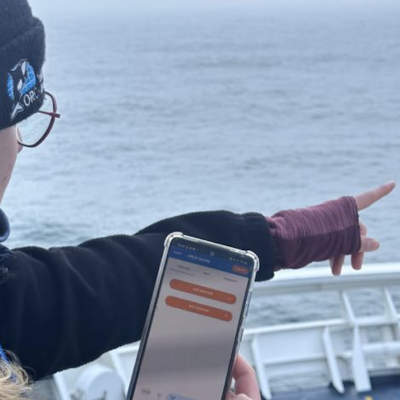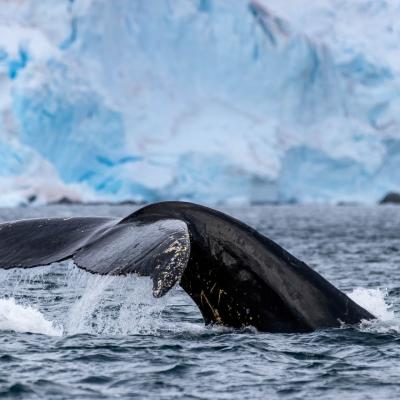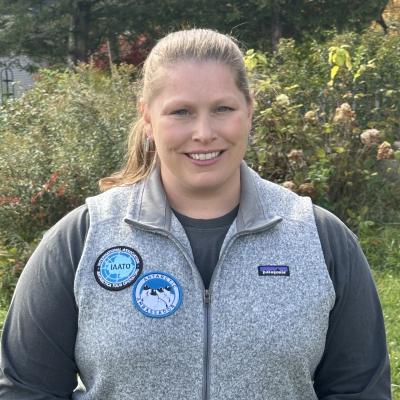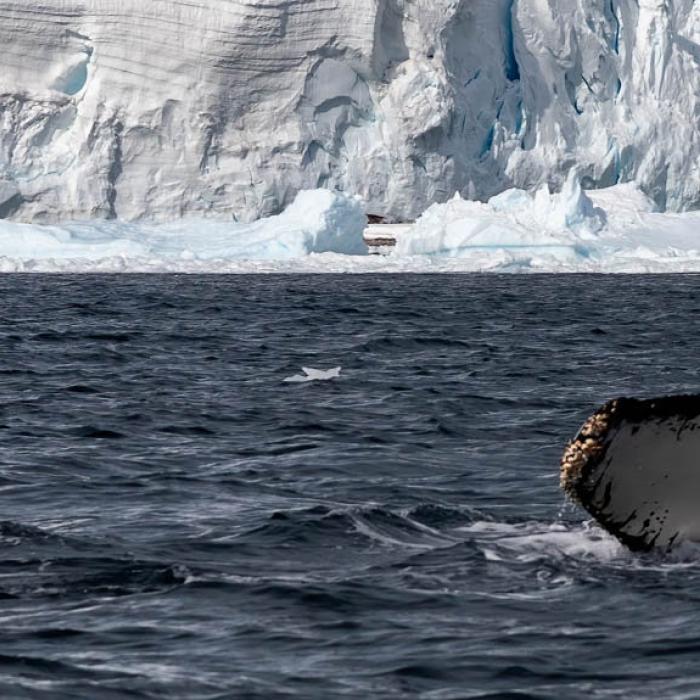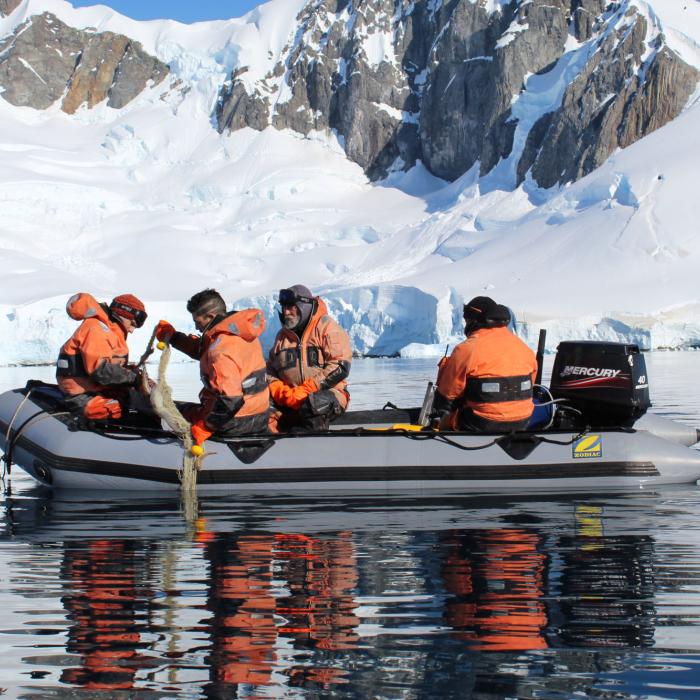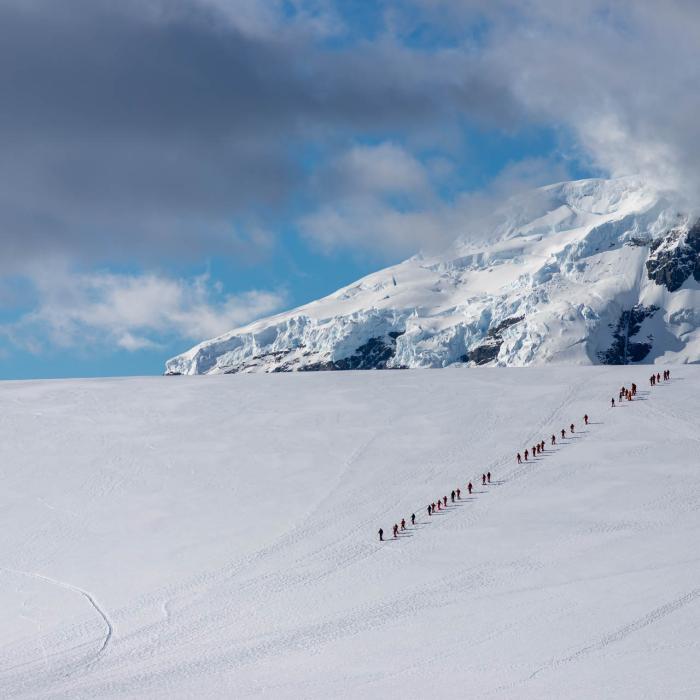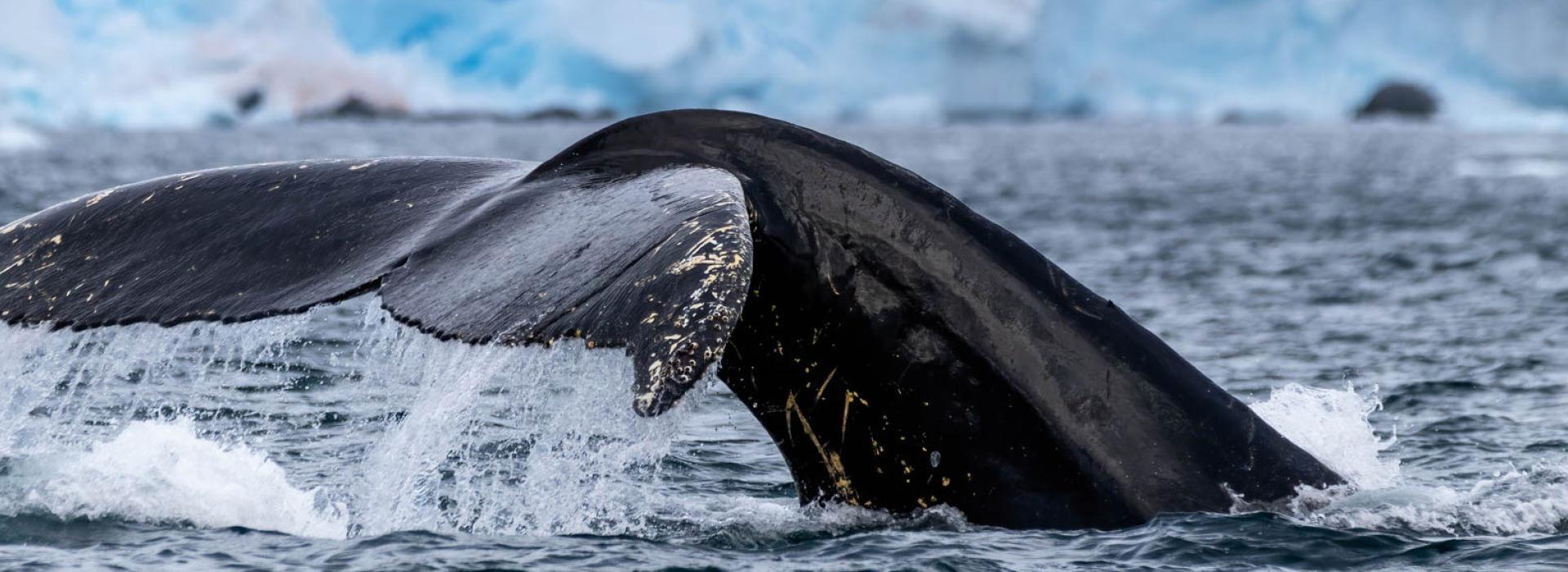
How Antarctic Tourism is Powering Global Marine Conservation
As we celebrate the International Week of Science and Peace, IAATO’s Science and Monitoring Senior Manager Maureen Lynch shares how strong partnerships can stand as a beacon of conservation and international cooperation.
Behind the scenes of Antarctic tourism, a growing movement is redefining what it means to explore the White Continent responsibly - using expedition tourism as a basis for scientific collaboration.
This season, the International Association of Antarctica Tour Operators (IAATO) is taking a significant step to enhance its wildlife monitoring program through a new partnership with the marine conservation charity ORCA. This collaboration connects sightings of whales and seals in Antarctica with a global database of marine mammal activity, strengthening both local protection efforts and international scientific research.
Launched in 2022, IAATO’s Voluntary Cetacean and Pinniped Sightings (V-CaPS) Program has already demonstrated the effectiveness of industry-led monitoring. The data collected by expedition guides, covering observations of whales and seals, has influenced safer operational practices. For example, IAATO members now adhere to mandatory whale slow-down areas and acoustic awareness protocols aimed at minimising disturbance and the risk of ship strikes.
By integrating V-CaPS into ORCA’s OceanWatchers citizen science platform, this local initiative becomes part of a larger global network of marine mammal sightings. Researchers will now be able to compare data from Antarctica with patterns observed elsewhere, providing a more comprehensive view of how species are moving, adapting, and surviving.
One of the strengths of the OceanWatchers platform is its consistency. It not only logs what is seen but also records how and under what conditions sightings occur, and measures the “effort”, or time spent observing. This means a whale sighting in the Antarctic Peninsula can be compared to data from the North Atlantic or Pacific Ocean. Over time, these insights become invaluable for tracking abundance, distribution, and the impact of environmental changes.
Science has the power to alter the role of tourism. IAATO Operators are not just taking guests to one of the world's most awe-inspiring environments; they are also empowering them to participate in its protection. They are not just acting as responsible stewards of this incredible place; they are also upholding Antarctica as a place of science and peace.
In an era when marine ecosystems face unprecedented pressures, this collaboration demonstrates what is possible when industries come together. Tourism is transcending to more than just a journey; it is becoming a platform for research, conservation, and global cooperation.
Steve Jones, ORCA’s Director of Fundraising and Operations, summarised it well: “Industry partnerships like this give us a unique opportunity to create safer oceans for whales. We’re proud to work with IAATO to help increase their positive impact and embed vital marine mammal research into the heart of their operations in Antarctica.”
As climate change and shifting ecosystems threaten marine life, this partnership represents a model of proactive stewardship, demonstrating that tourism can be a vital contributor to protecting unique environments.
For those fortunate enough to experience Antarctica firsthand, their voyage will now carry even greater significance. Every whale spout and every hauled-out seal is not just a magical moment - it is a data point in a global effort to safeguard our oceans and the wildlife that inhabits them.
